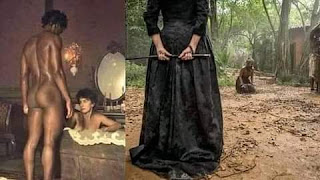Story of innocent boy George Stinney, 14, executed by electric chair after being convicted of murder in South Carolina
CONDEMNED TO DEATH
Story of innocent boy George Stinney, 14, executed by electric chair after being convicted of murder in South Carolina
More than 70 years later, in December 2014, George’s murder conviction was overturned by a South Carolina judge.
He was accused of the gruesome double murder of two white girls in the small town of Alcolu, South Carolina in March, 1944.
The bodies of Betty June Binnicker, aged 11, and Mary Emma Thames, eight, were found with their skulls fractured on the “black side” of the deeply divided community.
They had been bludgeoned to death with a railroad spike.
Police arrested little George after it emerged that he had seen the pair the previous day.
He was taken from his home by cops who then claimed he confessed to the double murder despite no written confession ever being produced.
There was also no physical evidence linking him to the crime.
His parents were never allowed to visit him following his arrest, his sister has claimed.
The infamous three-hour trial still hangs over South Carolina as one of the most horrifying miscarriages of justice ever carried out in the state.
George was sentenced to death by a jury of 12 white men who returned a guilty verdict after only 10 minutes of deliberation.
Just two months later, the 14-year-old child was led crying and shaking into the execution chamber.
Local newspaper reports say the guards had trouble strapping the small child, measuring 5ft 1in in height and weighing just 95lb (6st 7 lbs), into the electric chair which had been built for adults.
Their solution was to make George sit on a thick telephone directory.
Moments later the first surge of 2,400 volts were blasted into his little body before the adult death mask, too big for him, slipped from his face revealing tears streaming down from his eyes.
Following two more charges of electricity, the teenager was pronounced dead on June 16, 1944.
In December 2014, George’s murder conviction was overturned by a South Carolina judge.
Judge Carmen Mullen revealed that the boy’s lawyer had called "few or no witnesses," and failed to properly cross-examine his accusers.
His sister Amie Ruffner testified during the appeal process that her brother was at home on the day that two girls were killed and could not have possibly murdered them.
Amie said that that she watched her older brother being arrested by white policeman when she was just eight-years-old.
Amie says her family were hounded out of Alcolu because of the case and she has never returned since.
She said: “In those days, when you are white you were right, when you were black you were wrong."
A 1991 TV movie titled Carolina Skeletons recreates the terrifying execution of the teenager.
The film was based on a book of the same by George's nephew David Stout.






Comments
Post a Comment